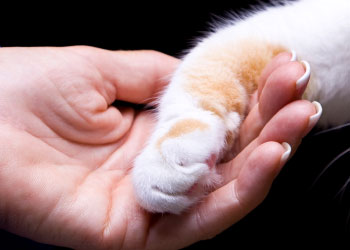Our surgery performs advanced neutering services for Cats and Dogs of all ages, call us today on 02089227500
Having your pet spayed or neutered is one of the greatest gifts you can provide your pet and family. These routine medical procedures not only help control pet overpopulation, but may also prevent medical and behavioral problems from developing. This allows your pet to lead a longer, healthier and happier life.
What is Spaying and Neutering?
A "spay", or ovariohysterectomy, is the surgical removal of a female cat or dog's ovaries and uterus, while "neutering", castration, or orchovasectomy is the removal of a male cat or dog's testicles. Prior to surgery, we may decide to carry out a complete physical examination of your pet or draw a sample of their blood for analysis. Both spaying and neutering are conducted while your pet is under general anesthesia to minimize pain and discomfort. Following surgery, our in-house doctor will instruct you on how to care for your pet while they are recovering. Within a few days, most pets are "back to normal"; the surgery site usually heals within two weeks and any skin stitches are removed at a recheck appointment if necessary.
Why Spay or Neuter?
Spaying or neutering your pet prevents unwanted births and reduces the influence of sex hormones on your pet's behavior. An example, in seven years, an unspayed female and unneutered male cat can produce up to 781,250 kittens. Homes cannot be found for most of these animals and many either end up in shelters or on the street. Only a lucky few are adopted; the rest are either euthanized or die from trauma, exposure, starvation or disease. By spaying or neutering your cat, you do your part to prevent this tragedy.
Behavior problems can also be prevented or minimized by spaying or neutering your pet. Sexual behavior in both male and female cats or dogs is reduced following surgery. A further example is that in 90% of male cats, neutering eliminated roaming, urine spraying, and fights with neighborhood cats, regardless of their age when neutered. Female cats no longer show "heat" behavior (soliciting mounting from males). Overall, being sexually intact increases the risk of relinquishment to a shelter. There are, however, large individual differences and not all pets undergo a behavior change following spaying or neutering.
Will My Pet's Personality Change?
Other than the previously mentioned behavior changes, spaying or neutering your pet is unlikely to change their basic personality. Some pets appear "lazy" since they are less likely to roam and may gain weight. In one study, 25% of cat owners felt their cats became more "docile" following castration. Hunting skills, playfulness, general activity levels, excitement, and vocalization also do not typically change following surgery.
When Should I Spay/Neuter My Cat or Dog?
Although some people suggest waiting until a cat or dog is six months old, early age spaying and neutering are becoming popular. Physically, males that are neutered prior to puberty do not develop the large head and thick skin of intact males. Both neutered males and spayed females have a tendency to gain weight due to a decrease in roaming and other sexual behavior. However, weight gain can be prevented through dietary management.
Studies have shown that cats and dogs spayed or neutered at less than six months of age do not have an increased risk of physical or behavioral problems as compared to those that undergo surgery later. Early-age spaying and neutering may prevent problem behaviors before they occur. Spaying and neutering should also be considered for any pet with a behavior problem, regardless of age. For certain behaviors, surgery may reduce or eliminate the problem, even in older cats or dogs.
Consult with our in-house behaviorist doctor for further information.



